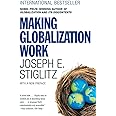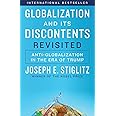
Enjoy fast, free delivery, exclusive deals, and award-winning movies & TV shows with Prime
Try Prime
and start saving today with fast, free delivery
Amazon Prime includes:
Fast, FREE Delivery is available to Prime members. To join, select "Try Amazon Prime and start saving today with Fast, FREE Delivery" below the Add to Cart button.
Amazon Prime members enjoy:- Cardmembers earn 5% Back at Amazon.com with a Prime Credit Card.
- Unlimited Free Two-Day Delivery
- Streaming of thousands of movies and TV shows with limited ads on Prime Video.
- A Kindle book to borrow for free each month - with no due dates
- Listen to over 2 million songs and hundreds of playlists
- Unlimited photo storage with anywhere access
Important: Your credit card will NOT be charged when you start your free trial or if you cancel during the trial period. If you're happy with Amazon Prime, do nothing. At the end of the free trial, your membership will automatically upgrade to a monthly membership.
Buy new:
$14.66$14.66
Buy used: $10.43
Other Sellers on Amazon
FREE Shipping
100% positive over last 12 months





Download the free Kindle app and start reading Kindle books instantly on your smartphone, tablet, or computer - no Kindle device required.
Read instantly on your browser with Kindle for Web.
Using your mobile phone camera - scan the code below and download the Kindle app.

 Audible sample Sample
Audible sample Sample 


Follow the author
OK
Making Globalization Work Paperback – September 17, 2007
Purchase options and add-ons
"A damning denunciation of things as they are, and a platform for how we can do better."―Andrew Leonard, Salon
Building on the international bestseller Globalization and Its Discontents, Joseph E. Stiglitz offers here an agenda of inventive solutions to our most pressing economic, social, and environmental challenges, with each proposal guided by the fundamental insight that economic globalization continues to outpace both the political structures and the moral sensitivity required to ensure a just and sustainable world. As economic interdependence continues to gather the peoples of the world into a single community, it brings with it the need to think and act globally. This trenchant, intellectually powerful, and inspiring book is an invaluable step in that process.- Print length374 pages
- LanguageEnglish
- PublisherW. W. Norton & Company
- Publication dateSeptember 17, 2007
- Dimensions5.5 x 1 x 8.2 inches
- ISBN-100393330281
- ISBN-13978-0393330281
The Amazon Book Review
Book recommendations, author interviews, editors' picks, and more. Read it now.
Frequently bought together

Customers who viewed this item also viewed
Editorial Reviews
Review
― Russ Juskalian, USA Today
"A searing critique of the conventional wisdom.... Stiglitz's analysis is eye-opening... because it is consistent and comprehensive, and he writes with rare clarity and passion for a distinguished economist."
― Jeffrey E. Garten, Newsweek
"A well-written and informative primer on the major global economic problems. [Stiglitz] helps his readers understand exactly what is at stake."
― Jeffry Frieden, New York Times Book Review
"An excellent book... a lodestar for those who want to achieve a different and better world."
― Guardian
"You don't have to agree with Stiglitz on every point to benefit from his creative thinking."
― Peter Coy, BusinessWeek
About the Author
Product details
- Publisher : W. W. Norton & Company; Reprint edition (September 17, 2007)
- Language : English
- Paperback : 374 pages
- ISBN-10 : 0393330281
- ISBN-13 : 978-0393330281
- Item Weight : 12.6 ounces
- Dimensions : 5.5 x 1 x 8.2 inches
- Best Sellers Rank: #1,612,872 in Books (See Top 100 in Books)
- #1,458 in Globalization & Politics
- #2,963 in International Business & Investing
- #18,991 in Economics (Books)
- Customer Reviews:
About the author

Joseph E. Stiglitz is a professor of economics at Columbia University and the recipient of a John Bates Clark Medal and a Nobel Prize. He is also the former senior vice president and chief economist of the World Bank. His books include Globalization and Its Discontents, The Three Trillion Dollar War, and Making Globalization Work. He lives in New York City.
Customer reviews
Customer Reviews, including Product Star Ratings help customers to learn more about the product and decide whether it is the right product for them.
To calculate the overall star rating and percentage breakdown by star, we don’t use a simple average. Instead, our system considers things like how recent a review is and if the reviewer bought the item on Amazon. It also analyzed reviews to verify trustworthiness.
Learn more how customers reviews work on Amazon-
Top reviews
Top reviews from the United States
There was a problem filtering reviews right now. Please try again later.
The problem is that the "Washington Consensus" as instituted by the IMF and World Bank has had disastrous results in many countries around the world most notably Russia. As the chief economist of the World Bank from 1997 to 2000, Joseph E. Stiglitz is probably a pretty decent source to go to for on why so many countries AREN'T booming after instituting IMF imposed "structural adjustments". The author offers Argentina as an example of a country which received an A+ rating from the IMF for following the Washington Consensus only to face financial calamity a few short years later.
As the author puts it, one of the main problems is that, "the Washington Consensus prescription is based on a theory of the market economy that assumes perfect information, perfect competition, and perfect risk markets". Mr. Stiglitz writes, "policies have to be designed to be implemented by ordinary mortals". Economists seem to have become so enamored by the blackboard theories behind pure free market economics that they ignore the reality of its results. Even worse, when economies follow the IMF's prescription and fail they're blamed for not adhering CLOSE ENOUGH to the IMF/World Bank dictates.
The other main problem is that the Washington Consensus is being instituted in countries that simply do not have the institutions necessary for a free market economy including strong property rights, an established tax base and the means to enforce the rule of law. The shock treatment in Russia allowed money to flow freely in order to stimulate foreign investment but all it caused was the money to drain right out. The IMF/World Bank are very inflexible for instance they admonish countries for deficit spending, in order to stimulate the economy, even when a country has accrued a considerable amount of savings. At the same time the IMF/World Bank encourages low tax rates meaning that even modest economic stimulants can push a country into deficit spending. The scary thing is that even if a country doesn't currently have loans with the IMF/World Bank they can still fear bucking the Washington Consensus given that a poor report from the IMF/World Bank can potentially scare away foreign investments.
The author wisely points out that economic growth is only real if it is sustainable. American neo-conservatives love to crow about their pro-growth support but growth is pointless if you destroy the environment and rip up all the natural resources in a few decades. Using GDP as the de facto benchmark of a countries economic progress can be very misleading. As a case in point the author offers up oil production. The faster a country can rip oil out of the ground the higher its GDP will rise but in truth the country may well become LESS valuable as its resources are depleted. Compounded that with environmental damage, that isn't being factored into the equation, and a country can become poorer as its GDP rises. This is not just some abstract case but a situation that occurs frequently.
The author discusses a lot more topics including the often anti-democratic nature of the IMF/World Bank, issues of asymmetric globalization between developing and developed nations, the stifling nature of over patenting, subsidies versus tariffs. For an economics book I found it to be very readable and extremely enlightening. Mr. Stiglitz is clearly on the progressive side of the political spectrum which is evident by his concern for the inequity in globalization. Fortunately the IMF and World Bank seem to be adjusting somewhat to the reality that strict adherence to the Washington Consensus isn't the end all be all solution. Hopefully this is a sign that the times are a changin'. Hopefully.
There are good reasons why you should read this book whether or not you read Stiglitz's previous book. Everyone interested in globalization needs to study a variety of perspectives, and this book may be the most balanced treatment available from a well-informed globalization critic. I've seen many writings that offer plenty of hand-wringing and finger-pointing, some taking the position that "globalization must be stopped and reversed NOW!" However, Stiglitz recognizes that globalization has the potential to do a lot of good, and that its negative aspects are mostly due to the fact that it's been managed badly. As the reader can determine from the book's title, his aim is to suggest solutions, which is more than a lot of authors do.
Not everyone will embrace his solutions, which rely heavily on new and existing international institutions and, in some cases, a degree of socially responsible international cooperation that has never been achieved in human history. Still, such suggestions need to be heard and debated. The scope of our global problems is unprecedented, and global solutions are called for. The time has come to start thinking and functioning at a new level, and Stiglitz emphasizes this throughout the book.
The writings of economists generally are not known for their gripping style, but fortunately Stiglitz is an exception to the norm - this book did not put me to sleep like all of my old college economics textbooks. It ranks near the top in my growing collection of books on globalization.
Top reviews from other countries
Divided in what happened, and what can do. (and should be done for a better world).
The globalization is made by the developed countries, they want trade without barriers, but (and its a big BUT) only when they they get profit for this trade. So it's converted in a one way globalization. We sell to you our products, but we'r not going to buy yours.
Well documented, as always. The prophets of liberalism and globalization can argue. But If look at the sources and at the statistics, you will be convinced yourself.
100% recommended.
With his experience as Chief Economist in the World Bank, Stiglitz brings up the global system formed by the developing countries and advanced nations, from the points of fair trading, intellectual patents and lifesaving medicines, global environmental problems, etc.
He calls for reformation of the global financial architecture, and well management of global resources, and also the global thinking.
About the environmental issue, the line impressed me most is,
"No issue can be more global than global warming"
A good guide to help you think and act globally.
スティグリッツの主張が現実の施策として採用される日がくれば、まだ米国が救われるチャンスがあるのかもしれない。










